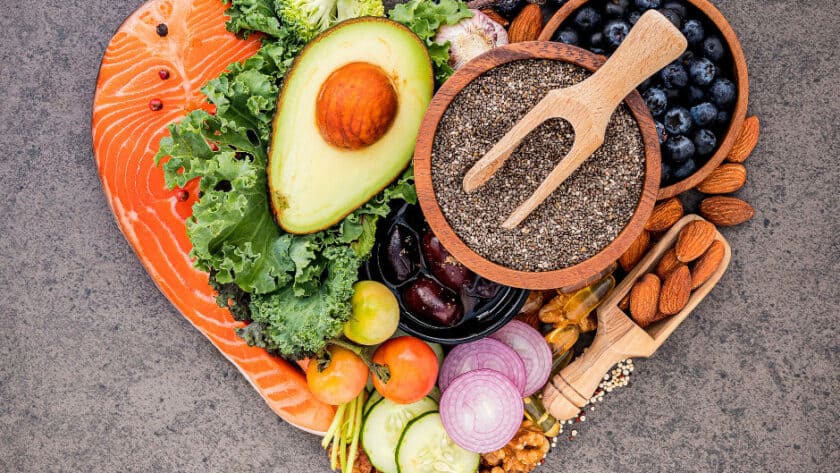In this ultimate guide, we will delve into everything you need to know about a low carb diet. Whether you are looking to lose weight, improve your overall health, or simply explore a new way of eating, understanding the basics of a low carb diet is essential.
Understanding the Basics of a Low Carb Diet
What is a Low Carb Diet?
A low carb diet, as the name suggests, is a dietary approach that emphasizes reducing the consumption of carbohydrates. Carbohydrates are found in foods such as bread, pasta, rice, and sugary snacks. By limiting your intake of these foods, you can effectively lower your overall carbohydrate consumption.
The Science Behind Low Carb Diets
Low carb diets work by causing your body to enter a state of ketosis. Ketosis is a metabolic state in which your body burns stored fat for energy instead of relying on carbohydrates. This can lead to weight loss and improved body composition.
Benefits of a Low Carb Diet
There are several benefits associated with following a low carb diet. Firstly, it can help with weight loss and weight management. By reducing your intake of carbs, you are likely to consume fewer calories, which can lead to a calorie deficit and, ultimately, weight loss.
Additionally, a low carb diet has been shown to improve blood sugar control, lower triglyceride levels, and increase HDL cholesterol levels. This can have a positive impact on overall heart health and reduce the risk of developing chronic diseases such as type 2 diabetes and cardiovascular disease.
Furthermore, a low carb diet can also provide a steady and sustained source of energy throughout the day. When you consume carbohydrates, your body breaks them down into glucose, which is used as fuel. However, this process can lead to fluctuations in blood sugar levels, resulting in energy crashes and cravings for more carbohydrates. On the other hand, when you follow a low carb diet, your body relies on fat for energy, which provides a more stable and long-lasting source of fuel.
In addition to the physical benefits, a low carb diet can also have positive effects on mental clarity and focus. Some studies suggest that reducing carbohydrate intake can improve cognitive function and reduce brain fog. This may be due to the fact that ketones, which are produced during ketosis, can provide an alternative fuel source for the brain, potentially enhancing cognitive performance.
Debunking Common Myths About Low Carb Diets
Is it Safe to Follow a Low Carb Diet?
One common myth surrounding low carb diets is that they are unsafe. However, research has shown that when followed appropriately and under the guidance of a healthcare professional, a low carb diet can be safe and effective for most individuals.
It is important to note that not all low carb diets are created equal. Some extreme versions of low carb diets, such as the ketogenic diet, may carry certain risks if not followed properly. These risks can include nutrient deficiencies, electrolyte imbalances, and potential adverse effects on kidney function. However, when a low carb diet is well-balanced and includes a variety of nutrient-dense foods, these risks can be minimized.
Can You Get Enough Nutrients on a Low Carb Diet?
Another misconception is that a low carb diet may lead to nutrient deficiencies. While it is true that certain types of carbohydrates provide essential nutrients, such as fiber and vitamins, there are plenty of low carb options that can provide these nutrients as well.
For example, leafy green vegetables like spinach and kale are low in carbohydrates but rich in fiber, vitamins, and minerals. Additionally, sources of healthy fats, such as avocados and nuts, can provide essential nutrients like vitamin E and omega-3 fatty acids. By incorporating these foods into a low carb diet, individuals can ensure that they are getting a wide range of nutrients necessary for optimal health.
Furthermore, it is important to remember that a well-rounded low carb diet should not solely focus on eliminating carbohydrates. It should also prioritize the consumption of lean proteins, healthy fats, and a variety of vegetables. By doing so, individuals can create a balanced eating plan that meets their nutritional needs while still adhering to a low carb approach.
How to Start a Low Carb Diet
Steps to Transition into a Low Carb Diet
If you are considering starting a low carb diet, it’s important to ease into it gradually. Rather than completely eliminating carbs from your diet overnight, start by reducing your intake of refined carbs such as white bread and sugary drinks. Instead, opt for whole grains, vegetables, and lean proteins.
Transitioning into a low carb diet can be a transformative experience for your health. By gradually reducing your carb intake, you give your body time to adjust and adapt to this new way of eating. It’s like embarking on a journey towards a healthier lifestyle, one step at a time. As you make these small changes, you’ll begin to notice how your energy levels stabilize and your cravings for unhealthy foods diminish.
Tips for Managing Cravings
Cravings can be a common challenge when transitioning to a low carb diet. To manage cravings, focus on consuming protein-rich foods that can help keep you feeling full and satisfied. Additionally, find healthy alternatives to your favorite carb-heavy snacks, such as swapping potato chips for kale chips or enjoying a piece of dark chocolate instead of a sugary dessert.
Managing cravings is an essential aspect of any successful low carb diet. It’s important to understand that cravings are not a sign of weakness but rather a natural response to the changes you are making. By incorporating protein-rich foods into your meals, you provide your body with the necessary nutrients to keep you feeling satiated and curb those pesky cravings. Remember, it’s all about finding balance and making smart choices that align with your health goals.
Planning Your Low Carb Meals
Essential Foods for a Low Carb Diet
When planning your low carb meals, it’s important to include a variety of nutrient-dense foods. Some essential foods for a low carb diet include lean proteins such as chicken, fish, and tofu, non-starchy vegetables like broccoli and spinach, healthy fats like avocados and nuts, and low sugar fruits like berries.
How to Prepare Low Carb Meals
Preparing low carb meals can be both easy and delicious. Try experimenting with different cooking methods, such as roasting vegetables or grilling meats. You can also find countless low carb recipes online or invest in a cookbook specifically dedicated to low carb cooking.
Let’s dive a little deeper into the world of low carb meal planning. One important aspect to consider is portion control. While low carb diets can be effective for weight loss and overall health, it’s still essential to monitor your portion sizes to ensure you’re not consuming excessive calories.
Another key factor in planning your low carb meals is understanding the glycemic index. The glycemic index measures how quickly a food raises your blood sugar levels. Foods with a high glycemic index can cause a spike in blood sugar, leading to cravings and energy crashes. By choosing low glycemic index foods, such as leafy greens, nuts, and seeds, you can maintain stable blood sugar levels throughout the day.
Maintaining a Low Carb Lifestyle
Staying Motivated on a Low Carb Diet
Maintaining a low carb lifestyle can sometimes be challenging, especially when faced with temptations or social gatherings. To stay motivated, remind yourself of the goals you have set and the positive changes you have experienced since starting your low carb journey. Surround yourself with a supportive community, whether that be online or in-person, and celebrate your accomplishments along the way.
One effective way to stay motivated is by setting small, achievable goals. Rather than focusing solely on the end result, break your journey into manageable steps. For example, aim to incorporate one new low carb recipe into your weekly meal plan or commit to increasing your daily vegetable intake. By celebrating these small victories, you’ll stay motivated and inspired to continue on your low carb path.
Dealing with Potential Challenges
While a low carb diet can have numerous benefits, it is important to acknowledge that it may not be suitable for everyone. Consulting with a healthcare professional before starting any significant dietary changes is crucial, especially if you have any pre-existing conditions or are taking medication.
If you do encounter challenges along the way, such as plateaus or difficulty maintaining the diet long-term, consider seeking guidance from a registered dietitian or nutritionist who can provide personalized advice and support.
It’s also important to remember that a low carb lifestyle is not just about what you eat, but also how you approach it mentally and emotionally. Take the time to reflect on your relationship with food and any emotional triggers that may lead to overeating or unhealthy habits. By addressing these underlying issues, you’ll be better equipped to navigate the challenges that may arise on your low carb journey.
By understanding the basics, debunking common myths, and learning how to start and maintain a low carb diet, you can embark on a journey towards improved health and well-being. Remember, each individual’s needs and preferences may vary, so it’s essential to find an approach that works best for you. Here’s to a successful and fulfilling low carb lifestyle!



